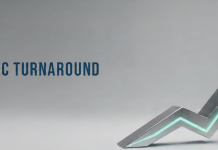WEBWIRE – Friday, November 24, 2023
Air Liquide has selected the three winners of its 2023 Scientific Challenge, out of 119 proposals from 29 countries. This 3rdedition of the Scientific Challenge aimed at identifying and accelerating the development of innovative solutions for the decarbonization of industrial ecosystems, in an open innovation approach. The laureates projects will receive funding from Air Liquide to develop their proposed solutions and to transform them into market-ready technologies.
Can LI, Davidson School of Chemical Engineering, Purdue University, USA, is the Laureateof the Data sharing for decarbonization topic.The sharing of databetween the different stakeholders of an industrial basin using the same utilities connected by physical networks iscrucial to meet shared sustainability targets. Can LIs proposal focuses on the development of algorithms facilitating data sharing, ensuring transparency as well as data privacy and security, to achieve industrial optimizations and reduce CO2 emissions.
Luis Miguel MADEIRA, Faculty of Engineering, University of Porto, Portugal,is the Laureateof the Energy storage using Essential Small Molecules topic. Renewable energies are intermittent by nature. To ensure their widespread adoption and contribute to the decarbonization of the energy sector, it is essential todevelop new ways of storing and reusing electricity, using Essential Small Molecules. Luis Miguel MADEIRAs project focuses on a new technology development based on an innovative cyclic system, to produce methane (CH4) as an energy carrier, from industrial captured CO2 and renewable hydrogen (H2).
Enrico TRONCONI, Department of Energy, Politecnico di Milano, Italy, is the Laureateof the Electric Heating for Hydrogen (H2) production topic. One way of decarbonizing hydrogen production would beto electrify the heat generation required for steam-methane reforming. Yet achieving the reaction temperature (800C) with electric power is a challenge. Enrico TRONCONIs proposal consists in a new technological solution enabling an efficient electrified Steam Methane Reforming process. Based on a new conductive device harnessing the resistive heating, this solution helps reduce the energy consumption and the CO2 emissions of the hydrogen production process.
The three laureates were selected by a Jury of 8 members, headed by Air Liquide Vice-President Research & DevelopmentJrme Christin. It included in particularProfessor Isabelle Ryl, Director of PRAIRIE at INRIA (PaRis Artificial Intelligence Research InstitutE), andProfessor Steven Chu, Nobel Prize Laureate in Physics, former US Secretary for Energy, Professor at Stanford University, USA.
The three winners of the Scientific Challenge will receive the Air Liquide Scientific Prize endowed with 50,000 euros. In addition,their scientific works will be supported by Air Liquide expertise and equipment, as part of a 3-year partnership, in order to develop their innovative proposals and to transform them into market-ready technologies.
Armelle Levieux,member of Air Liquides Executive Committee and Vice President of Innovation, stated:
The Air Liquide Scientific Challenge has generated strong interest from the worldwide scientific community. This illustrates the relevance of our open innovation approach. Previous editions led to fruitful collaborations with our academic partners, materializing in scientific publications, patents and even the creation of start-ups. This new edition will contribute to accelerating the development of pioneering technologies to promote progress and the transition to a low-carbon society, in line with Air Liquides ADVANCE strategic plan.
###
Air Liquide
A world leader in gases, technologies and services for Industry and Health, Air Liquide is present in 73 countries with approximately 67,100 employees and serves more than 3.9 million customers and patients. Oxygen, nitrogen and hydrogen are essential small molecules for life, matter and energy. They embody Air Liquides scientific territory and have been at the core of the companys activities since its creation in 1902.




